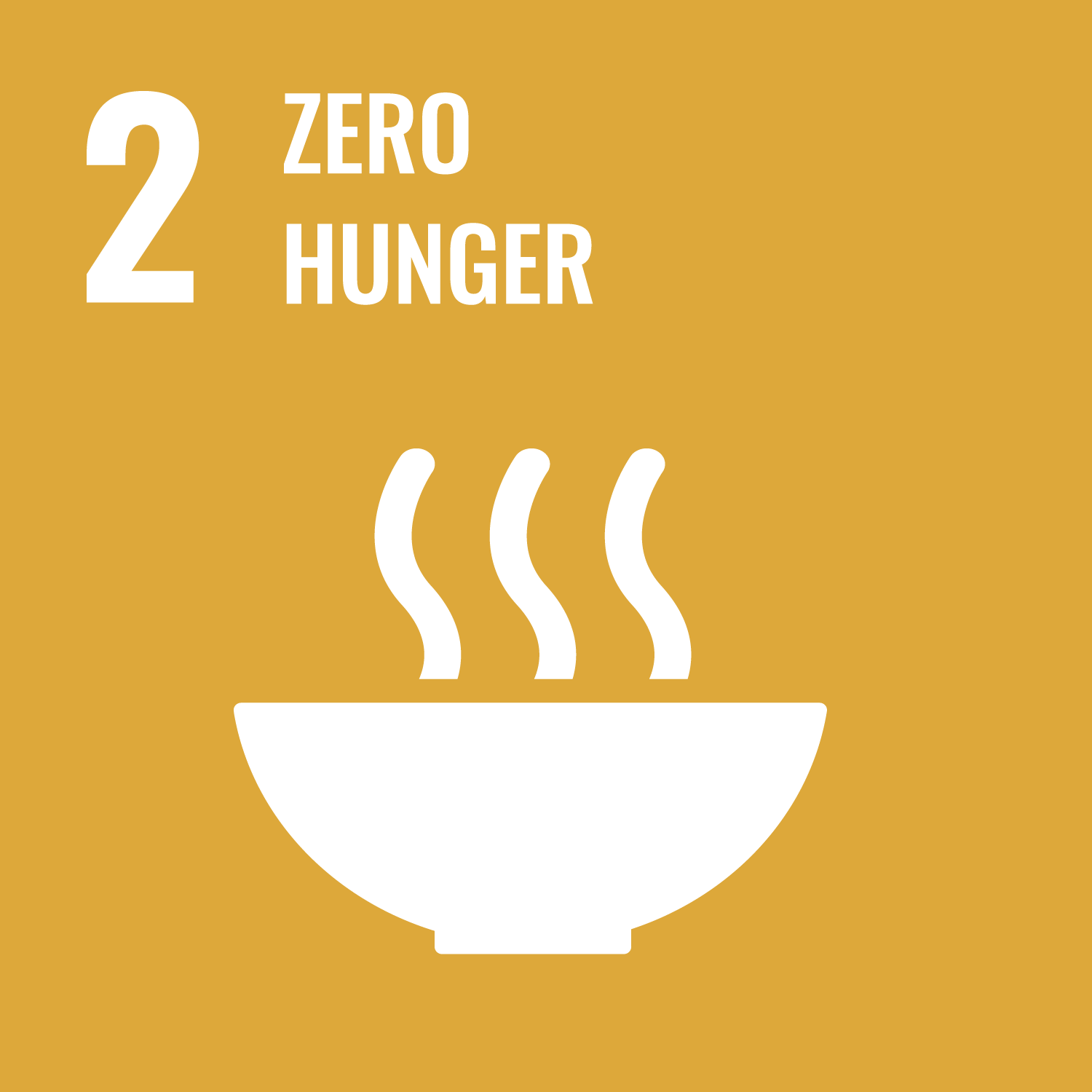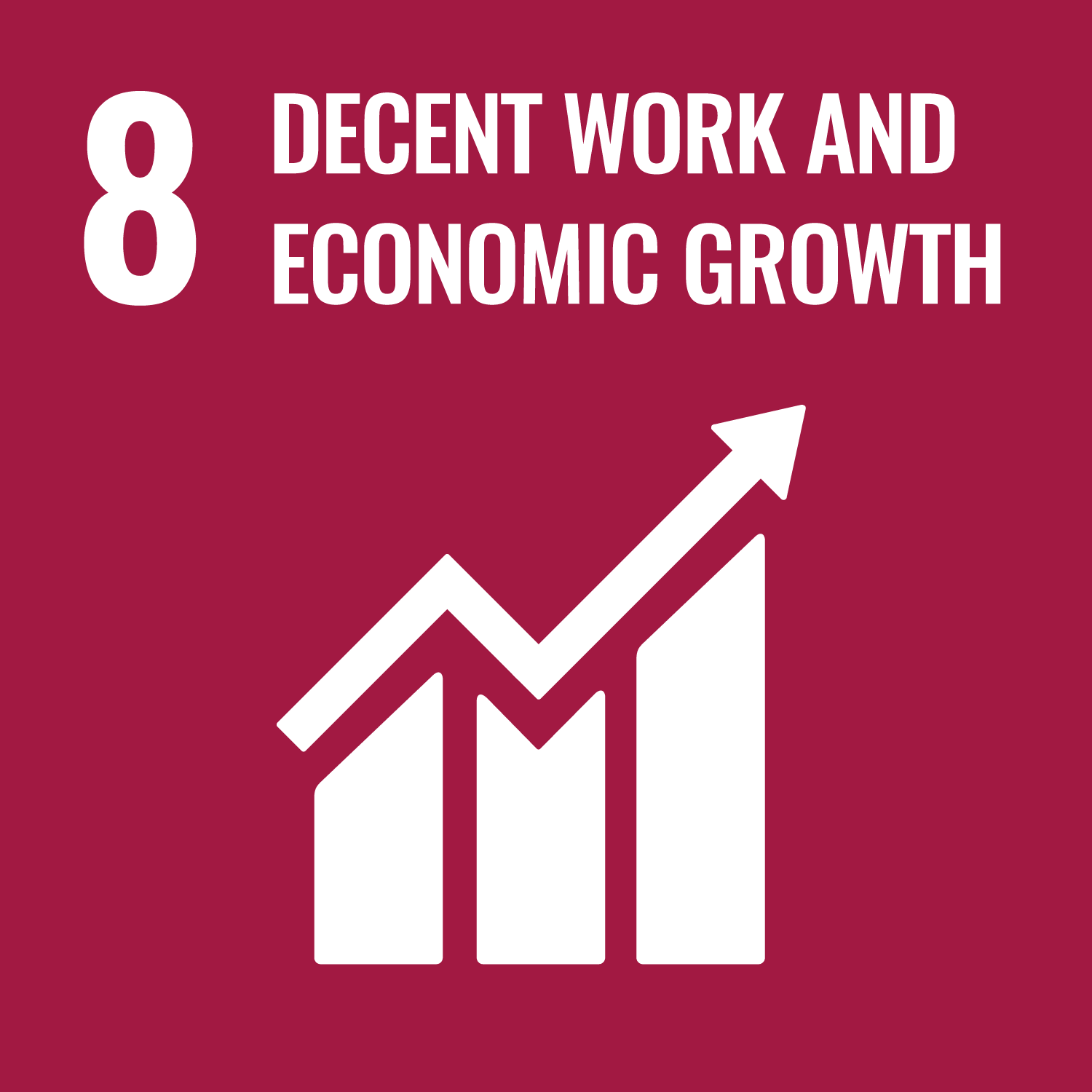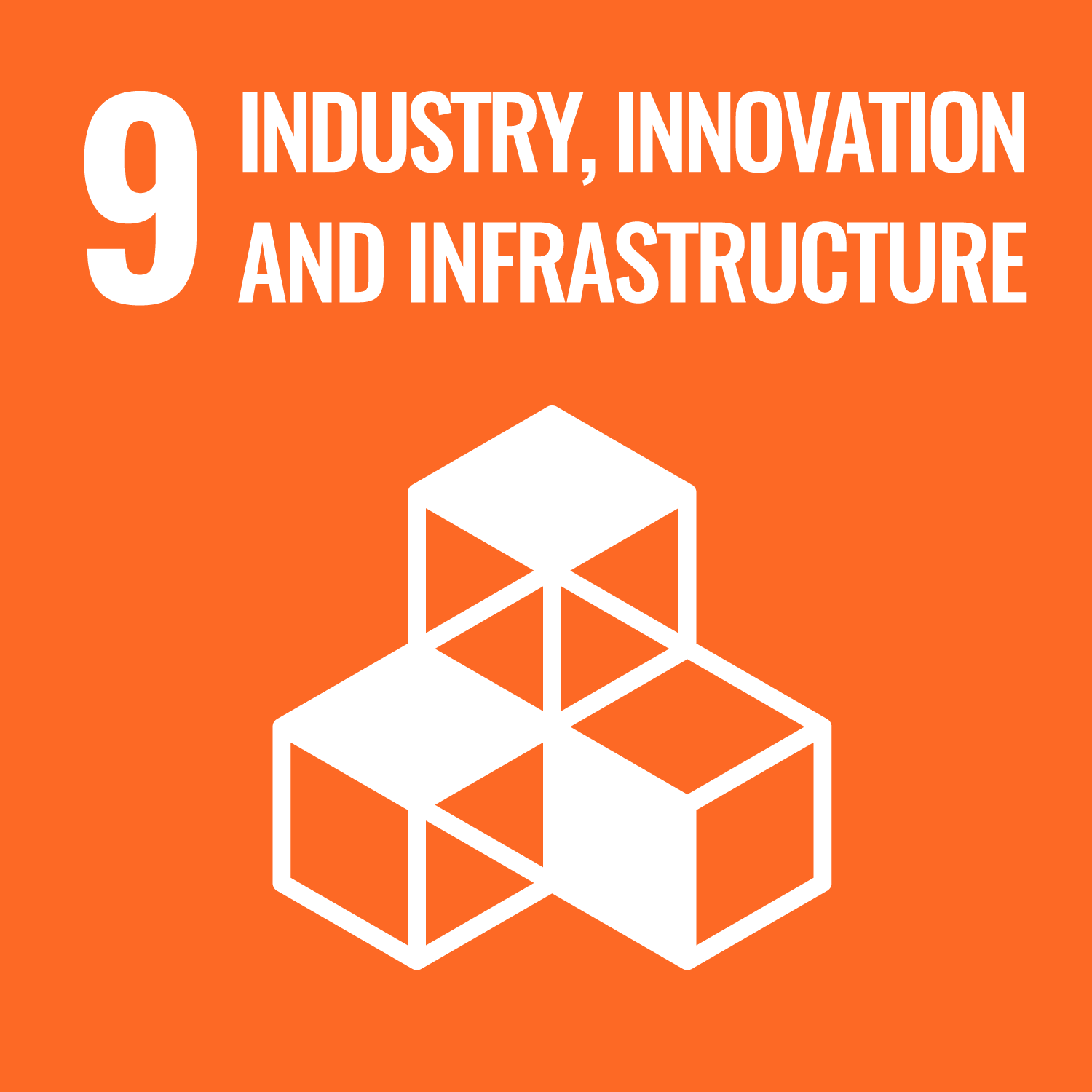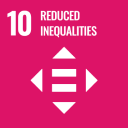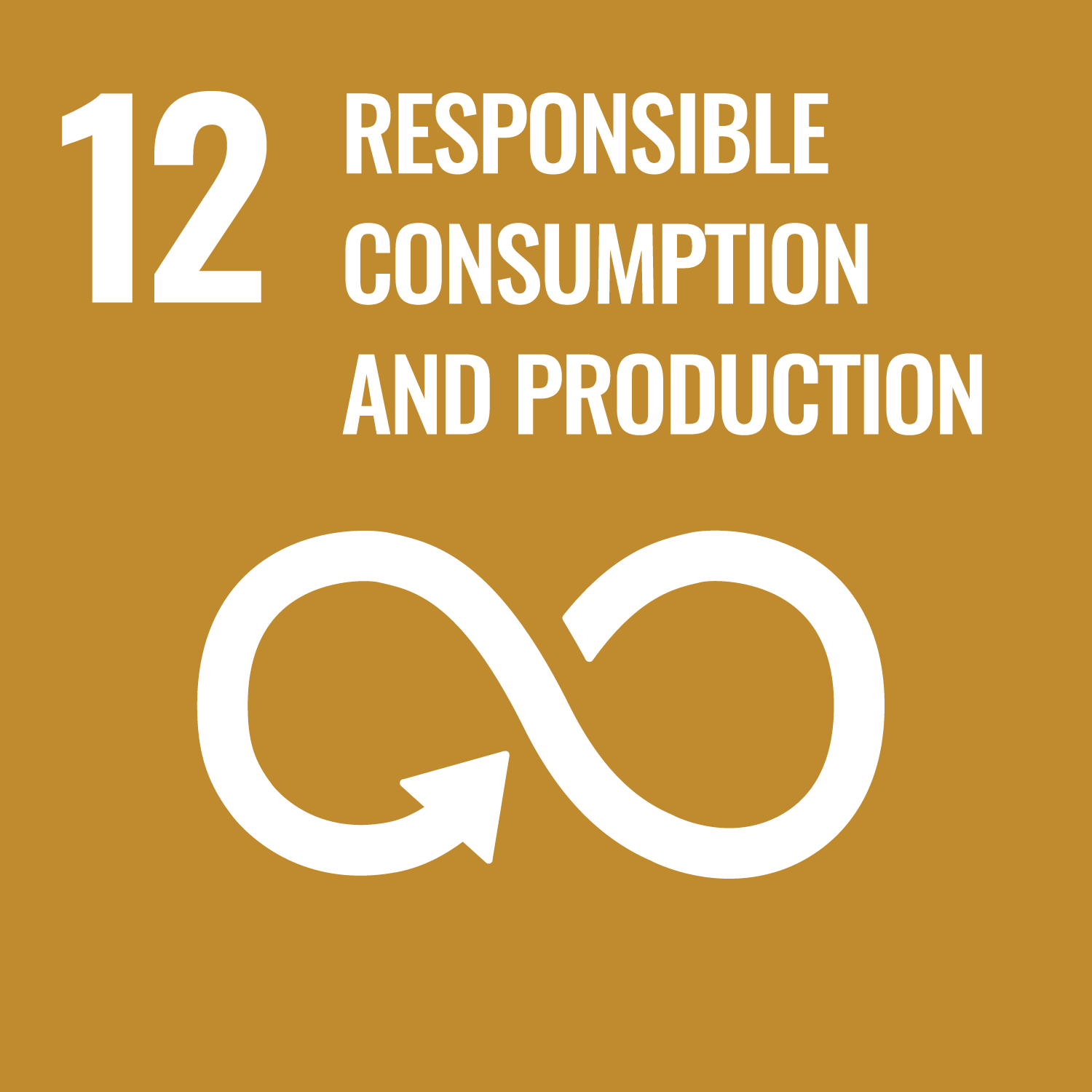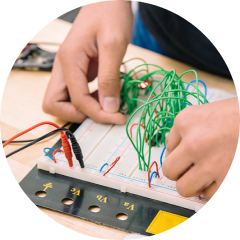Synergies in Partnerships
Collaborating for Better Food Security
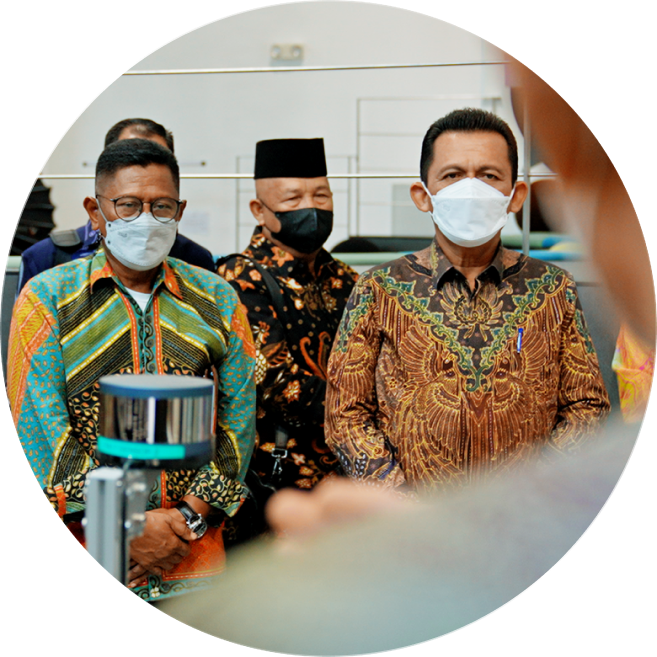
With many countries relying on exports for their food staples, food security becomes a key concern when they face difficulties in the production and distribution of food. With climate change, economic and geopolitical challenges threatening food production and supply, governments need to plan ahead to proactively mitigate these risks.
For land-scarce Singapore, close to 90% of its food is imported making it vulnerable to international supply chain disruptions. To ensure its food security, Singapore diversifies its food sources and aims to produce 30% of its food by 2030 as a buffer against supply disruptions.
Indonesia’s largest province, Riau Islands (also known as Kepulauan Riau or KEPRI in short) is also actively looking for solutions to increase its food production and improve its supply chain resilience to feed its population of 2.1 million people.
Dr H. Syamsul Bahrum, the Assistant for Economic and Development Affairs of the Provincial Government of Riau Islands, shared that KEPRI has gradually shifted from an agricultural economy to an industrial-based one now.
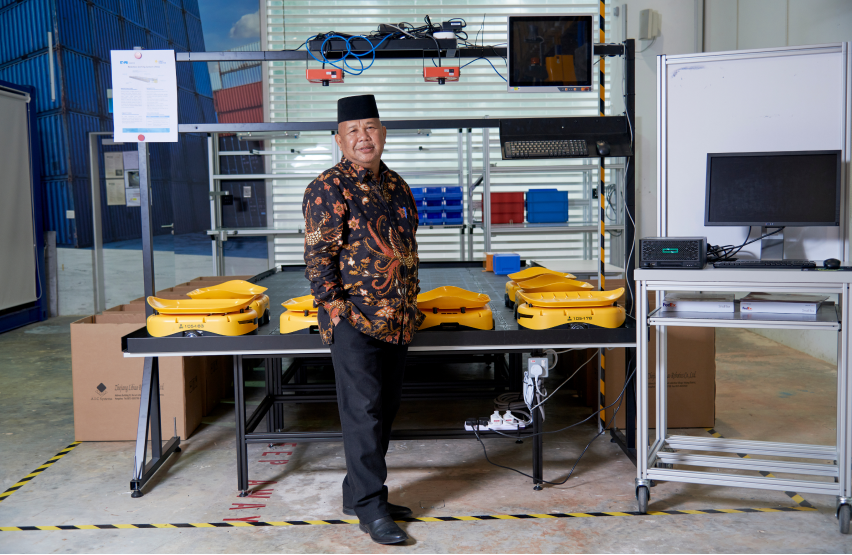
“85% of our population work in industrial sectors like tourism. About 1-3% of the population work in the agriculture and fishery sectors,” said Dr Syamsul.
“There is a shift from agriculture to modern sectors: from farm jobs to industrial sectors. If people have a choice, they prefer working in the urban area.”
As a result of these changes, less arable land is used for growing crops – a challenge to KEPRI’s goal of increasing its agricultural productivity and output for export. But the KEPRI government believes that technology can overcome this challenge.
Elaborating, Dr Syamsul said: “KEPRI is made up of 4% land and 96% water – and in agriculture, you need land, not water. So, we need to use technology and engage in capital-intensive agriculture instead of traditional agriculture.”
At the same time, increasing food production can reduce KEPRI’s vulnerability to supply disruptions, while improving its economic status as a food exporter, and the livelihoods of its farmers and fishermen.
With that in mind, the KEPRI government has partnered with Temasek Foundation and Singapore’s Republic Polytechnic to share perspectives on innovations and technology affecting food security and supply chain.
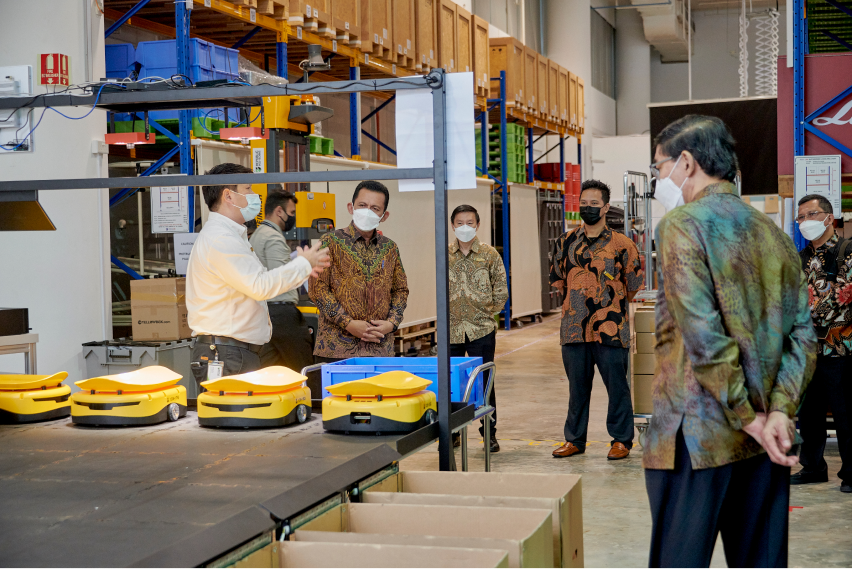
Through the programme, leaders, provincial government officials, entrepreneurs, and industry practitioners from Riau Islands will learn more about the latest technologies such as the Internet of Things, augmented reality, cloud and blockchain, and apply them to raise the level of food production in KEPRI.
The programme, comprising six workshops covering topics on digital transformation, sustainable urban farming, and aquaculture, will be conducted at Republic Polytechnic in Singapore and 16 institutions in Indonesia.
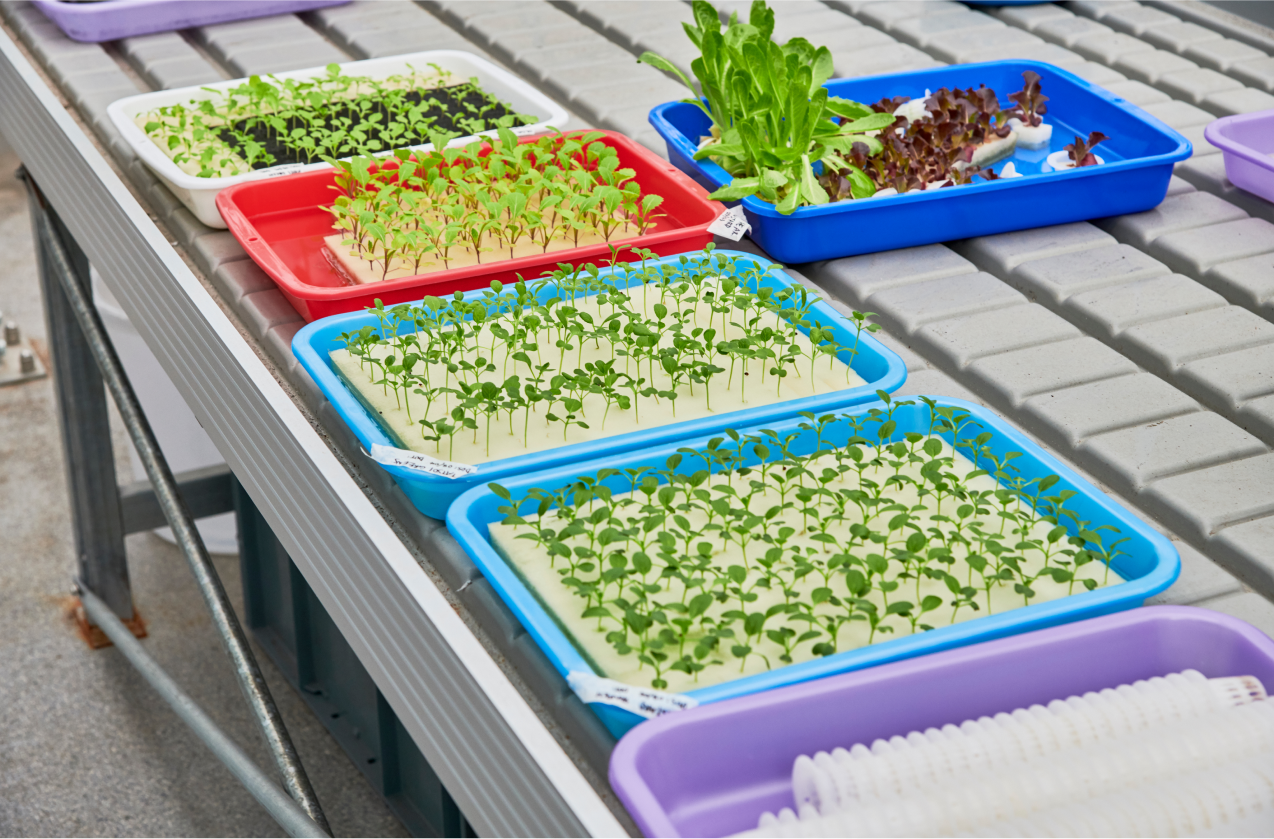
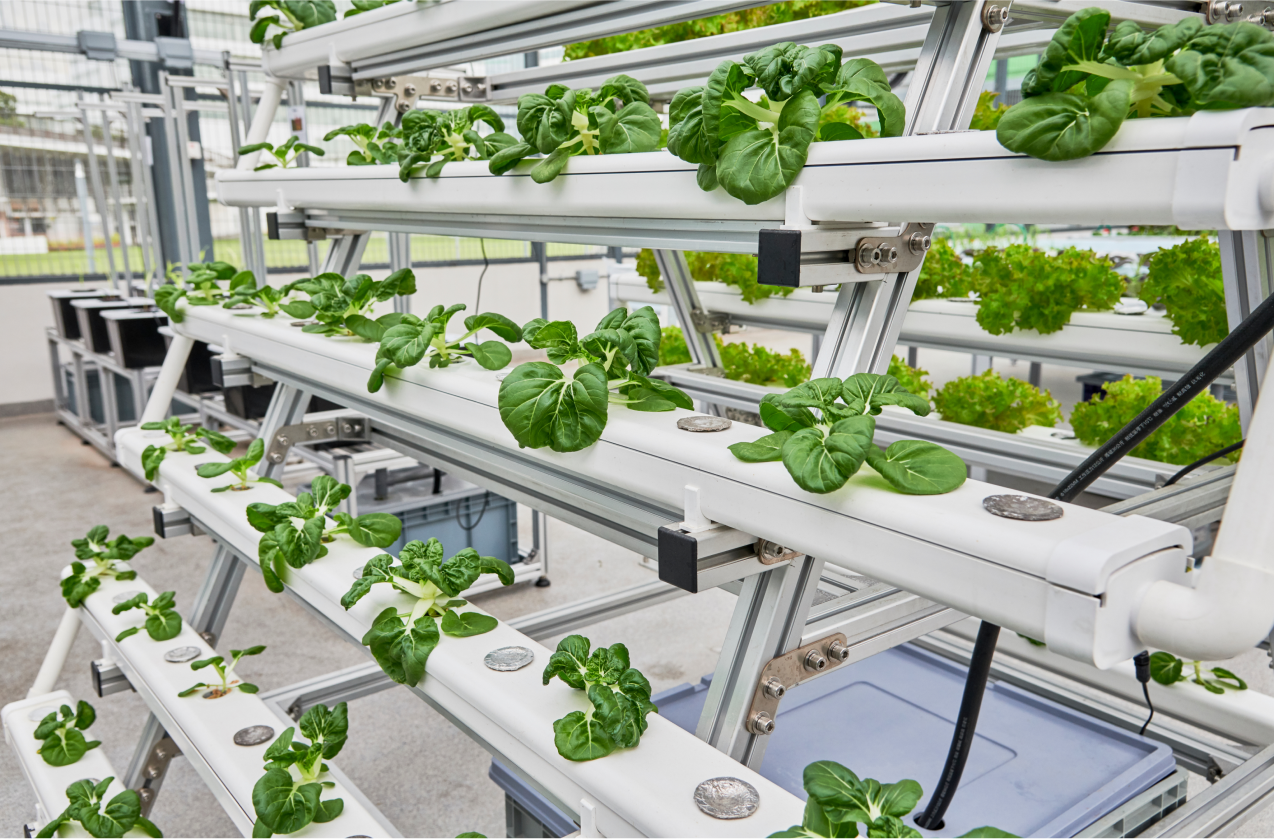
Dr Syamsul believes that the programme will be beneficial as peers from Indonesia and Singapore exchange insights and share learnings.
We are cooperating, rather than competing.
When we work together, we
try to achieve mutual benefits like information transfer,” Dr Syamsul
explained.
Dr Terence Chong, Director of International Relations at Republic Polytechnic, believes that technology, such as the LEAN methodology could be applied to overcome challenges posed by traditional agricultural practices. Some of these technologies could be adapted to support KEPRI’s agriculture and aquaculture industries to overcome land constraints, grow crops more effectively and improve food resilience.
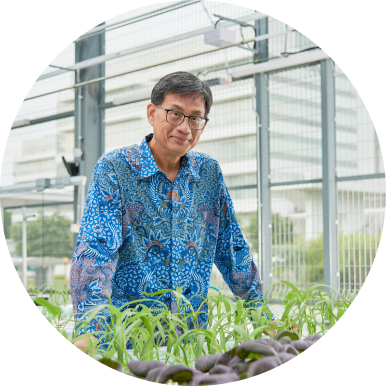
We want to empower communities to solve their challenges so that future generations will be better off. And as institutions, to have this belief together. Once we establish this, anything can happen.”
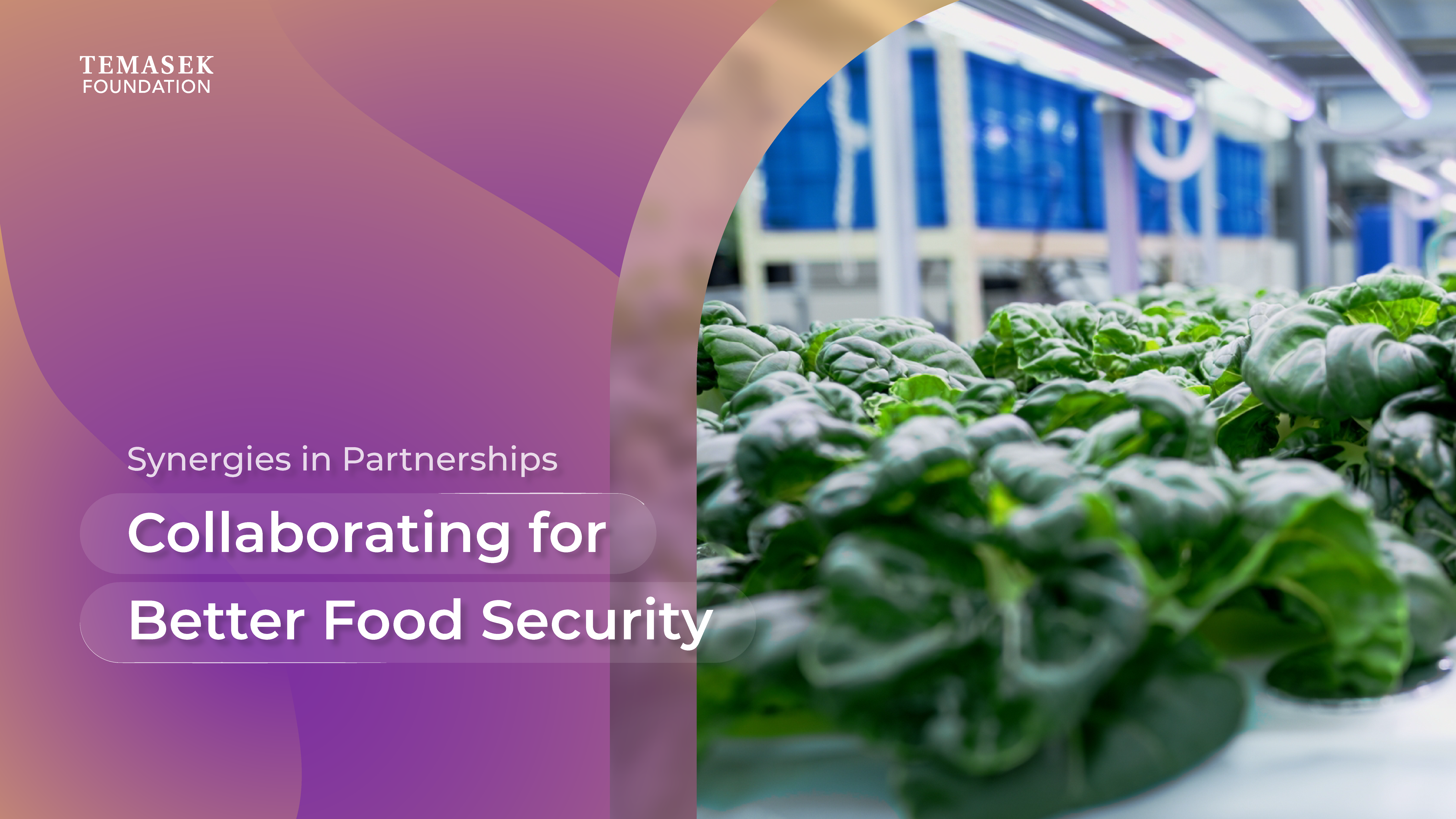
Food Industry 4.0 and Supply Chain Programme in Riau Islands, Indonesia
In partnership with the Provincial Government of Riau Islands and Republic Polytechnic, Temasek Foundation is supporting the capability development of public officials and training institutions in Riau Islands on urban agriculture technology and aquaculture with Industry 4.0 principles. These include digital transformation, 3D printing, and the Internet of Things. Some 24 leaders and 120 provincial public officials, entrepreneurs and industry practitioners will participate in the programme and exchange insights with their peers from Republic Polytechnic and other food and technology organisations in Singapore.
With many countries relying on exports for their food staples, food security becomes a key concern when they face difficulties in the production and distribution of food. With climate change, economic and geopolitical challenges threatening food production and supply, governments need to plan ahead to proactively mitigate these risks.
For land-scarce Singapore, close to 90% of its food is imported making it vulnerable to international supply chain disruptions. To ensure its food security, Singapore diversifies its food sources and aims to produce 30% of its food by 2030 as a buffer against supply disruptions.
Indonesia’s largest province, Riau Islands (also known as Kepulauan Riau or KEPRI in short) is also actively looking for solutions to increase its food production and improve its supply chain resilience to feed its population of 2.1 million people.
Dr H. Syamsul Bahrum, the Assistant for Economic and Development Affairs of the Provincial Government of Riau Islands, shared that KEPRI has gradually shifted from an agricultural economy to an industrial-based one now.

“85% of our population work in industrial sectors like tourism. About 1-3% of the population work in the agriculture and fishery sectors,” said Dr Syamsul.
“There is a shift from agriculture to modern sectors: from farm jobs to industrial sectors. If people have a choice, they prefer working in the urban area.”
As a result of these changes, less arable land is used for growing crops – a challenge to KEPRI’s goal of increasing its agricultural productivity and output for export. But the KEPRI government believes that technology can overcome this challenge.
Elaborating, Dr Syamsul said: “KEPRI is made up of 4% land and 96% water – and in agriculture, you need land, not water. So, we need to use technology and engage in capital-intensive agriculture instead of traditional agriculture.”
At the same time, increasing food production can reduce KEPRI’s vulnerability to supply disruptions, while improving its economic status as a food exporter, and the livelihoods of its farmers and fishermen.
With that in mind, the KEPRI government has partnered with Temasek Foundation and Singapore’s Republic Polytechnic to share perspectives on innovations and technology affecting food security and supply chain.

Through the programme, leaders, provincial government officials, entrepreneurs, and industry practitioners from Riau Islands will learn more about the latest technologies such as the Internet of Things, augmented reality, cloud and blockchain, and apply them to raise the level of food production in KEPRI.
The programme, comprising six workshops covering topics on digital transformation, sustainable urban farming, and aquaculture, will be conducted at Republic Polytechnic in Singapore and 16 institutions in Indonesia.


Dr Syamsul believes that the programme will be beneficial as peers from Indonesia and Singapore exchange insights and share learnings.
We are cooperating, rather than competing.
When we work together, we
try to achieve mutual benefits like information transfer,” Dr Syamsul
explained.
Dr Terence Chong, Director of International Relations at Republic Polytechnic, believes that technology, such as the LEAN methodology could be applied to overcome challenges posed by traditional agricultural practices. Some of these technologies could be adapted to support KEPRI’s agriculture and aquaculture industries to overcome land constraints, grow crops more effectively and improve food resilience.

We want to empower communities to solve their challenges so that future generations will be better off. And as institutions, to have this belief together. Once we establish this, anything can happen.”

Food Industry 4.0 and Supply Chain Programme in Riau Islands, Indonesia
In partnership with the Provincial Government of Riau Islands and Republic Polytechnic, Temasek Foundation is supporting the capability development of public officials and training institutions in Riau Islands on urban agriculture technology and aquaculture with Industry 4.0 principles. These include digital transformation, 3D printing, and the Internet of Things. Some 24 leaders and 120 provincial public officials, entrepreneurs and industry practitioners will participate in the programme and exchange insights with their peers from Republic Polytechnic and other food and technology organisations in Singapore.
OTHER STORIES
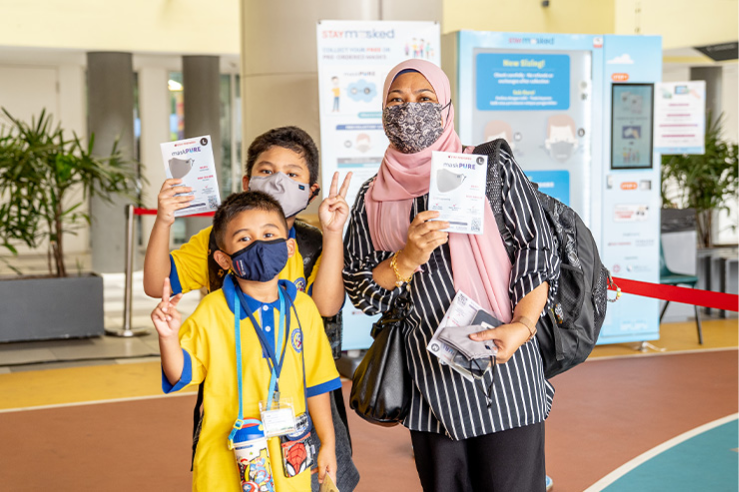
COVID-19 Initiatives
A Race Against Time to Fight a Deadly Virus
Equipping local and international communities with critical resources to keep them safe during the COVID-19 pandemic
READ MORE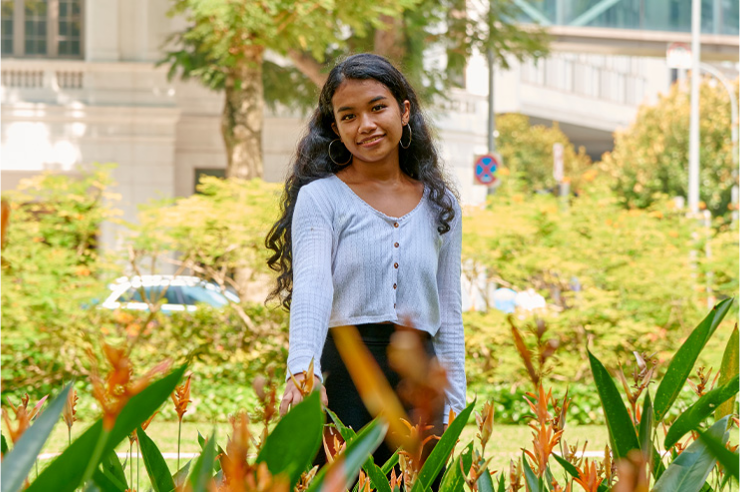
Synergies in Communities
Eradicating a “Silent Killer” in Singapore with Vaccination
Encouraging vaccination against cervical cancer for Singaporean women from low-income families
READ MORE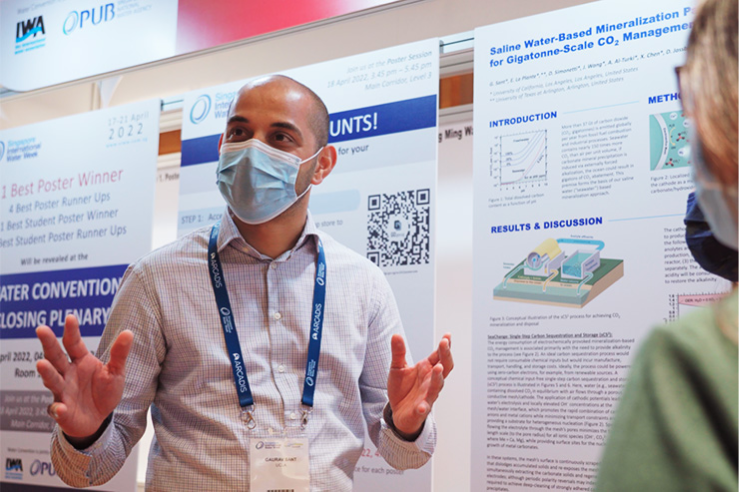
Synergies in Innovations
Engineering a SeaChange in Carbon Management
Developing a transformational technology to extract carbon dioxide from oceans and permanently store carbon by converting them into useful materials
READ MORE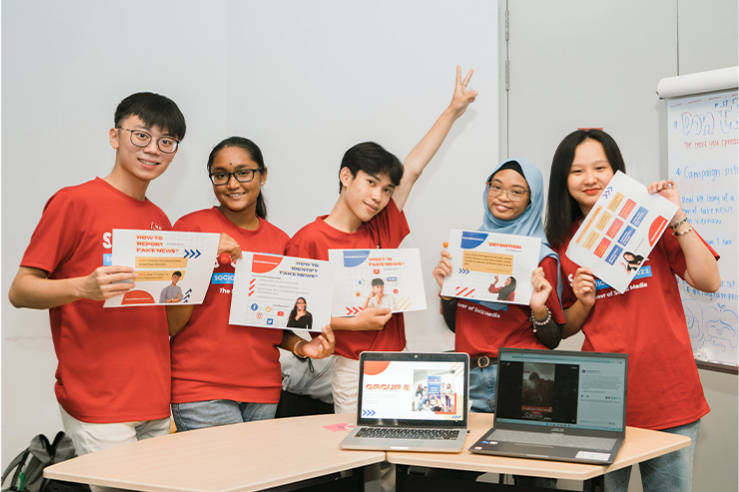
Youth Programmes
Nurturing a New Generation of Resilient Leaders
Supporting youth leaders to be future-ready
READ MORE